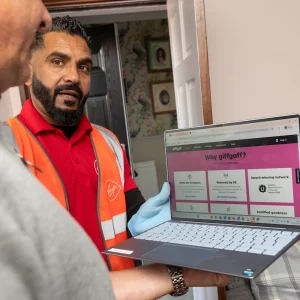Sponsored Links
Bath and North East Somerset UK Shun Government BDUK Broadband Funding
Posted: 17th Nov, 2011 By: MarkJ

 The Bath & North East Somerset Council (BNESC) has made the surprising decision not to use £670,000 of central government funding as part of its efforts to improve the local broadband ISP infrastructure, apparently because it would have been too expensive. Instead the council plans to spend just £25,000 on exploring alternatives.
The Bath & North East Somerset Council (BNESC) has made the surprising decision not to use £670,000 of central government funding as part of its efforts to improve the local broadband ISP infrastructure, apparently because it would have been too expensive. Instead the council plans to spend just £25,000 on exploring alternatives.The government's Broadband Delivery UK (BDUK) office has so far set aside £530m (could rise to £830m by 2017) to help 90% of "people in each local authority area" get access to a superfast broadband (24Mbps+) service by 2015 (the remaining 10% will only get a minimum speed of at least 2Mbps).
Back in August BDUK set aside £1,430,000 for the West of England region, which covers Bath and North East Somerset, the City of Bristol and South Gloucestershire (here). It estimated that only 14.4% of total premises in the region either had no or very poor broadband access.
BNESC Councillor, Cherry Beath, explained (Keynsham People):
"If we are going to go forward with the scheme then we need to do a plan as part of the bid. We would get around £670,000 from the Government, but B&NES would then incur the costs for around £1 million."
"If we are going to go forward with the scheme then we need to do a plan as part of the bid. We would get around £670,000 from the Government, but B&NES would then incur the costs for around £1 million."
Apparently BNESC would need to submit a local plan with the other regional councils in order to be in with a chance of gaining the funds. It must also conduct a survey, which could help it locate the worst affected areas.
Councillor, Patrick Anketell-Jones (Con, Lansdown), warned:
"This could prove really damaging to our local economy, as it's easy to forget that good internet connections are just as important to small businesses in rural areas as they are to large companies in city centres."
"This could prove really damaging to our local economy, as it's easy to forget that good internet connections are just as important to small businesses in rural areas as they are to large companies in city centres."
It's unclear where BNESC's hefty costs are coming from. Surveys can easily be conducted online or through local newspapers and the plan itself doesn't have to be meticulous (details are often worked out during the tender process). A lack of experienced I.T. people in the council might be one limiting factor.
Some BDUK demands certainly could place a lot of strain upon smaller local authorities. At any rate the situation now leaves the door open for an enterprising infrastructure provider to step in and offer up an alternative. Local people will surely be less than forgiving if, in a few years time, BNESC's choice has failed to deliver.
Search ISP News
Search ISP Listings
Search ISP Reviews
Latest UK ISP News








Cheap BIG ISPs for 100Mbps+
150,000+ Customers | View More ISPs
Cheapest ISPs for 100Mbps+
Modest Availability | View More ISPs
Latest UK ISP News
Helpful ISP Guides and Tips
Sponsored Links
The Top 15 Category Tags
- FTTP (6918)
- BT (3917)
- Politics (3120)
- Business (2822)
- Openreach (2703)
- Building Digital UK (2537)
- Mobile Broadband (2527)
- Statistics (2162)
- FTTC (2153)
- 4G (2132)
- Virgin Media (2066)
- Ofcom Regulation (1802)
- 5G (1782)
- Fibre Optic (1617)
- Wireless Internet (1615)
Sponsored
Copyright © 1999 to Present - ISPreview.co.uk - All Rights Reserved - Terms , Privacy and Cookie Policy , Links , Website Rules






























